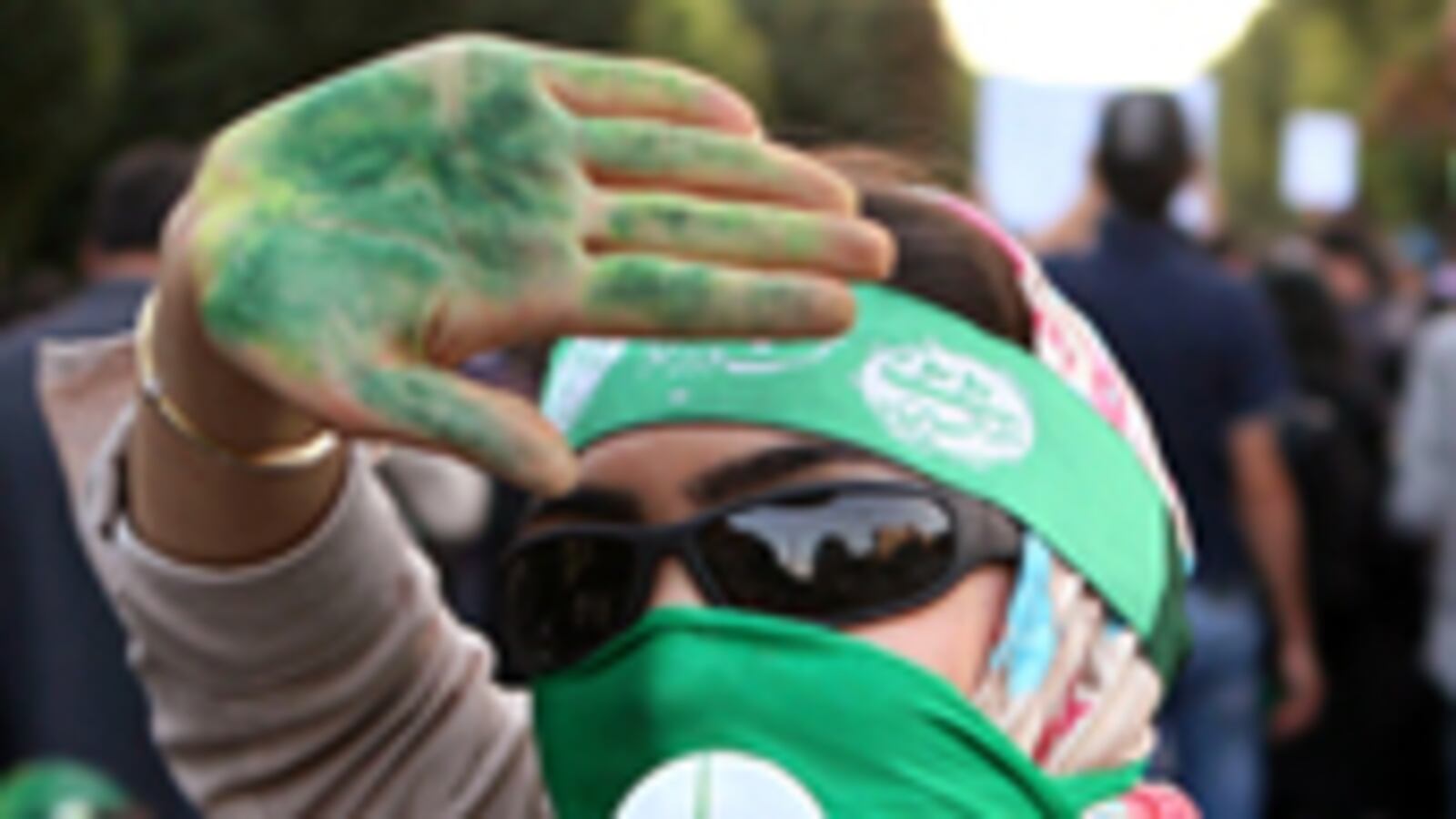
Plus, read more insight on Iran's election from other Daily Beast writers.
Even during subdued times, Iranians tend to have oversize expectations of the United States, and what it can or cannot do for their troubled nation. I remember riding a bus through central Tehran last summer, surprised at how openly a young woman expressed her desperation with the grim state of Iranian politics: “Let the Americans come,” she said loudly. "Let them sort things out for us once and for all." The women's section, at the back of the bus of course, took her remark casually, and some nodded.
This lingering belief among Iranians that America has some unique control over their fate is a legacy of the two nations' tangled past. Beginning with the American coup that overthrew Iran's democratically elected prime minister, Mohammed Mosaddeq, in 1953, through to Jimmy Carter's tepid response to the revolutionary crowds that helped bring down the shah's regime in 1979, both U.S. action and inaction are considered equally powerful among most Iranians.
This lingering belief among Iranians that America has some unique control over their fate is a legacy of the two nations' tangled past.
Given this history, Iranians have looked curiously to Washington in recent days, eager to see what America's new president has to say about Ahmadinejad's fraudulent re-election and the furious protests it has unleashed. The years I've spent living in Iran, both under President Ahmadinejad and his more moderate predecessor, led me to expect that most people would be desperate for a nod from America. Until last week, Iranian student leaders often insisted that they didn't have the power to meaningfully oppose their government from the inside. They said they needed the West to pressure the mullahs as well, in hopes that the regime would eventually feel squeezed on all sides.
But in conversations with friends and relatives in Tehran this week, I've heard the opposite of what I had expected: a resounding belief that this time the United States should keep out. One of my cousins, a woman in her mid-30s who has been attending the daily protests along with the rest of her family, viewed the situation pragmatically. “The U.S. shouldn't interfere, because a loud condemnation isn't going to affect Iranian domestic politics one way or the other. If the supreme leader decides to crackdown on the protests and Ahmadinejad stays in power, then negotiations with the United States might improve our lives.”
I heard these sentiments, remarkably thoughtful for such a passionate moment, echoed from many quarters. President Barack Obama's outreach to Iran, and his offer of a mutually respectful dialogue, has raised the possibility of better relations for the first time in years, and many Iranians worry that a false step might jeopardize that prospect altogether. A friend of mine who studies public relations in Tehran noted that other American allies in the Gulf, Arab dictatorships with no pretence of democracy, are thriving economically. “In the end, a dictatorship that doesn't face U.S. sanctions is better off than one that does,” she said. “Now that after 30 years it seems that we have a chance to negotiate with America, it would be a shame if we lost the chance.”
Other friends I spoke with cited various reasons why the United States should maintain its discrete posture. “If Obama's position until now has been to respect Iran, then he really has no choice but to watch first how things unfold. Mousavi hasn't produced any facts yet, no one has produced evidence of fraud,” said my friend Ali, a 40-year-old photographer. “That's what is needed before Obama takes a major stand.”
My older relatives fretted particularly that any real criticism by the United States would be used as a pretext by Ahmadinejad to blame the protests on “outside enemies,” a reflexive response for the president when dealing with even housing inflation and the rising price of tomatoes. “It's better for Obama to stay out of this. Given what happened with Bush in Florida, Ahmadinejad can always claim the United States is in no position to lecture anyone about fair elections,” my aunt noted.
Though it seems most Iranians are taking such a measured view of American involvement, there are still some who feel that both the United States and the world must take a stand. A girlfriend of mine emailed to complain bitterly about what she considers America's cowardly silence. “Why is it with a country like North Korea, the world shouts that the dictator is hated by his people, but when it comes to us, the West is diplomatic? The world must help us today. People are shouting and telling the world what is going on here, and the world should help us. People are tired and now we need the world's help.”
Azadeh Moaveni has reported on Iran for Time magazine and other publications since 1999. She is the author of Lipstick Jihad, the co-author of Shirin Ebadi's memoir Iran Awakening, and most recently, Honeymoon in Tehran.






